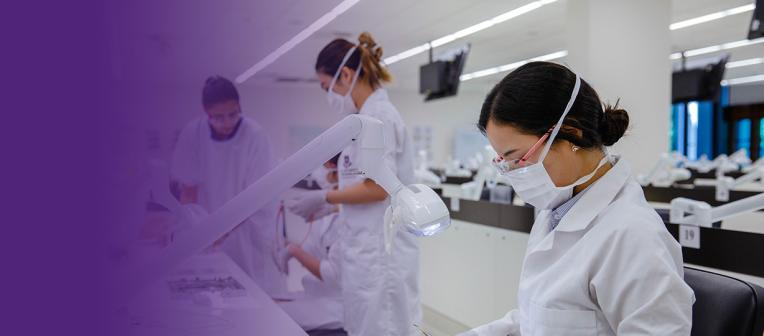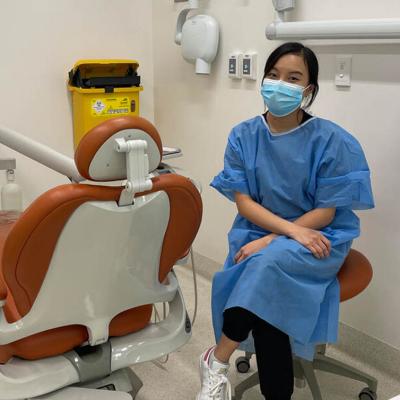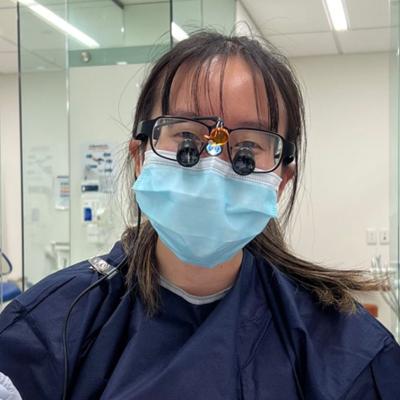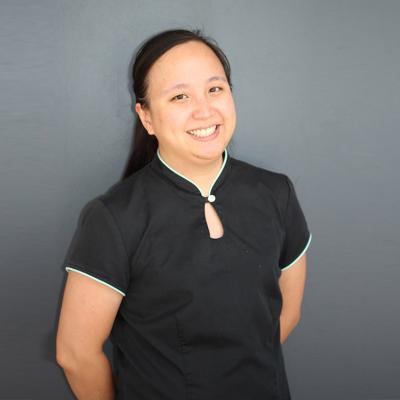Are you interested in a career in dentistry? Whether you’ve just completed high school or are a university graduate looking to change careers, there are study options available to get you there.
Here’s everything you need to know about becoming a dentist in Australia.
1. Complete an accredited university degree in dentistry
The University of Queensland offers two main pathways to study dentistry.
Undergraduate study
UQ’s Bachelor of Dental Science (Honours) is a 5-year, full-time program available to both school leavers and applicants who have completed another degree.
You’ll start building your clinical skills from your first semester in UQ’s world-class simulation clinics and labs, and you'll begin treating patients in clinics from your second year. In your final year, you’ll get a real feel for life as a full-time dentist with a 39-week placement in a public dental clinic.
Prerequisites for entry
In order to gain entry into the Bachelor of Dental Science (Honours), you will need to:
- meet the minimum ATAR score of 99 (or equivalent)*
- have completed the Queensland Year 12 (or equivalent) General English subject (Units 3 & 4, C)*
- have completed Chemistry (Units 3 & 4, C) (Biology is also recommended).*
*These prerequisites are indicative. Learn more about entry requirements for this program.
Postgraduate study
UQ’s Doctor of Dental Medicine is a 3.5-year, full-time program available to applicants who have completed a prior university degree.
This intensive program allows you to fast-track your studies to become a registered dental professional.
How long does it take to study dentistry with UQ’s Doctor of Dental Medicine?
UQ’s Doctor of Dental Medicine is one of the fastest postgraduate dentistry programs available in Australia. The innovative curriculum has been designed to condense your studies into 3.5 years (full-time study), which is 6 months faster than most equivalent programs across Australia. You’ll undertake approximately 2,000 hours of supervised clinical placements and graduate as an oral health professional eligible for general registration to practise as a dentist.
Prerequisites for entry
In order to gain entry into the Doctor of Dental Medicine, you will need:
- a bachelor's degree (or equivalent) in health, allied health, physical sciences or biological sciences*
- to have completed university-level studies in human anatomy and human physiology or cellular physiology within the 10 years prior to program commencement*
- to have completed the GAMSAT within the 4 years prior to the year of commencement.*
*These prerequisites are indicative. Learn more about entry requirements for this program.

Did you know? UQ’s Oral Health Centre is the largest dental education and research centre in Australasia. The Centre’s award-winning teaching facilities include 150 dental chairs across 11 clinics, general anaesthetic theatres, and clinical simulation laboratories.
2. Register with the Dental Board of Australia
After graduating, you must register with the Dental Board of Australia in order to practise. The AHPRA Dental Board website offers valuable information regarding student and graduate registration.
The Dental Board of Australia requires you to renew your registration each year to continue practising as a dentist in Australia. You’re also required to complete continuing professional development (CPD) activities.
The AHPRA Dental Board website provides more information on registration renewal and CPD requirements.
3. Specialise in your area of interest
Once you have become a dentist, there is the option to further specialise in your area of interest through UQ’s Doctor of Clinical Dentistry. This is a 3-year postgraduate program which prepares you to become a registered specialist in dento-maxillofacial radiology, endodontics, oral medicine, orthodontics, periodontics, prosthodontics, or special needs dentistry.
Graduates may choose to go on to careers in industry, or take the next step and pursue a career in research by completing a higher degree by research program, such as the Master of Philosophy or Doctor of Philosophy.
Prerequisites for entry
In order to gain entry into the Doctor of Clinical Dentistry, you will need:
- an approved degree in dentistry from UQ (or equivalent)*
- a minimum 2 years of graduate clinical experience
- to be registered as a dentist with the Dental Board of Australia.*
*These prerequisites are indicative. Learn more about entry requirements for this program.
Please note that, due to limited places, entry to this program is competitive and not all applicants who meet the entry requirements are offered a place.
Ready to take the first or next step in your dentistry career? Explore our programs:
Bachelor of Dental Science (Honours) Doctor of Dental Medicine Doctor of Clinical Dentistry






